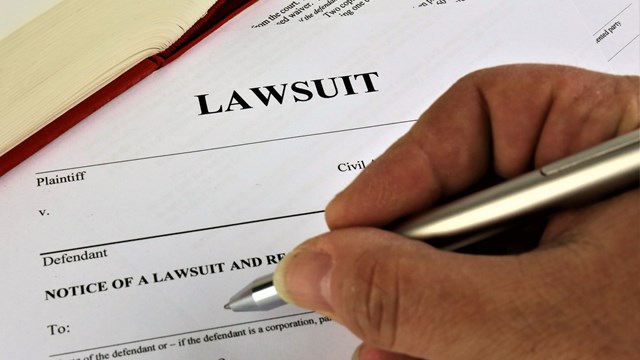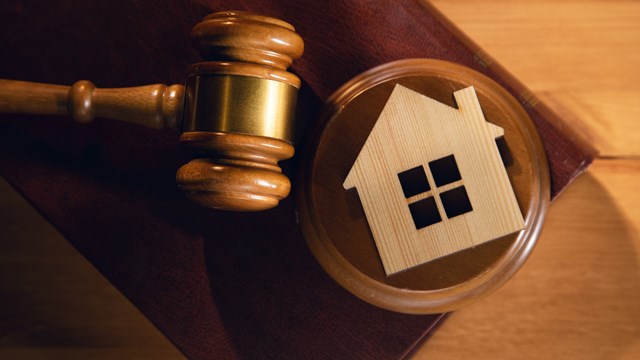‘Better to have and not need, than need and not have.’ This adage applies to umbrellas, insurance, and good attorneys. Condominiums, community associations, and co-op boards are volunteers, and rely on their legal counsel to navigate legal requirements, protect the interests of the association or corporation, and help avoid costly headaches. Having quality legal representation is essential–but it can be difficult to identify the right counsel for your unique community. Below are a few tips to help boards select legal counsel for their association or co-op:
Expertise
Firstly, look for attorneys who specialize in representing community associations. An attorney with substantive experience representing community associations will more deftly assist the board in navigating the many issues that can arise in the course of their duties, from disruptive residents to delinquent assessments, to complying with any applicable legal requirements, to amending and enforcing the governing documents, conducting annual elections, negotiating contracts on the association’s behalf, and so forth. An attorney who is a subject matter expert can also spot and offer proactive solutions to potential issues before they even arise, and give guidance on not just the law, but also customary best practices and practical insights.
Some questions to ask about expertise include:
• Has the attorney represented other associations similar to yours? For how long?
• Is community association work the main focus of their practice?
• Are they an active member of any community association trade organizations?
• Have they published any articles or spoken at industry events regarding community association matters?
• What are some best practices they recommend for the particular issues your community association is facing?
Value
Like any good vendor or service provider, a good community association attorney will deliver value to their client. This starts with understanding your board’s specific business objectives and concerns, and offering solutions and guidance to meet these objectives. Hourly rates are certainly part of the equation, but they don’t tell the whole story. Quality of work and time to complete the necessary task are also important factors for calculating value. A low hourly rate will be quickly offset by inefficient work, or work that is not in line with your objectives. Appropriate staffing is also an important factor in delivering value. Assigning work to professionals (attorneys, paralegals, etc.) with appropriate experience and skills will help keep costs down while ensuring efficient and quality work.
Some community association attorneys will offer alternative fee arrangements, such as a monthly retainer program where the community association pays a fixed monthly fee for certain work, rather than billing on an hourly basis for time spent on the work. These arrangements offer some cost certainty, but the value proposition depends on the specifics (e.g., amount of work, what work is included in the program, etc.). Be sure to review the scope of a proposed fee arrangement to determine if it includes the types of services your association frequently requires in order to avoid paying for services you don’t need.
Some questions to ask about fees and value include:
• What are proactive ways you deliver value to your community association clients?
• What are the hourly rates for each professional?
• What types of matters do you assist your community association clients with?
• Do you assign work to associates or paralegals when appropriate?
• Are there any alternative fee arrangements besides hourly billing? If so, what are the specifics? When are these arrangements a good fit for your clients?
The Team
You want legal representation who knows you and your association. Familiarity with your community, its board, and staff members allows your counsel to guide your association effectively and spot potential issues before they become larger problems. It also leads to reduced liability and cost savings. On the board’s side, it’s also important to know who else will assist in the event your ‘primary’ attorney is unavailable, or if an issue arises that requires expertise in another area of law. It’s also important to have a designated point of contact at the firm to help establish a relationship of trust and preserve institutional knowledge. A deep bench of professionals will help ensure that your association receives timely and cost-effective guidance (see #2 above).
A full-service firm will have other practice groups that can step in as needed and provide legal guidance in other areas of law - things like reviewing the estate documents of a deceased unit owner to determine who may access the unit, handling disputes with association employees, suing a vendor for breach of contract, or obtaining a bank loan. Working with a full-service firm will help ensure that your building or association receives quality legal counsel on whatever issues may arise.
Questions to ask about your prospective legal team include:
• What services do you offer to community association clients?
• What other professionals will we work with?
• Who will be our designated point(s) of contact?
• How are matters staffed? Why?
• What other practice groups does the firm offer, in case we encounter issues that require specific expertise? If there are no additional practice groups, how would these issues be handled?
Issues With Prior Counsel
Chances are if you’re searching for new legal counsel, there was at least some issue with your prior counsel. Identifying these issues will help guide your search. Be upfront about what worked with your previous legal pros, and where results fell short of expectations.Clear expectations are key to a good attorney-client relationship and to ensure the same issues do not recur.
Questions to ask around prior counsel include:
• We were dissatisfied when our prior counsel did ‘X’ - What would you do differently?
• ‘X’ is very important to us. Is this something you can assist us with? How?
• What expectations should we have as the board when working with you?
Subjective Fit
The best attorney-client relationships are relational, and not simply transactional. That distinction is why objective factors like expertise and value are important in identifying the right legal counsel, but the subjective ‘fit’ between attorney and board should not be ignored. ‘Fit’ often boils down to trust and personal comfort level, as well as the specific needs of each association. Not all associations are created equal; some have frequent, complex legal matters that require a firm with not only association-related expertise, but also other areas of expertise, such as litigation, employment or corporate experience. Smaller associations, or associations with few legal issues may not require the same level of representation–so keep in mind the specific needs of your association when looking at options for counsel.
Questions about subjective fit include:
• Do we trust the attorney to ‘have our back’ and help our board navigate thorny issues and look out for our best interests?
• Is their personality and temperament a good fit for our board and (if professionally managed) our management?
• Is their approach to problem solving compatible with our board and our community?
• Will this professional tell us what we need to hear—even if it’s not necessarily what we want to hear?
• Does their level of expertise and rate structure fit our association’s needs?
Quality legal counsel is essential for a community association to function properly, but identifying the right counsel can feel overwhelming. At the end of the day, the process is more art than science. The above questions and considerations are by no means exhaustive, but are intended as a jumping-off point to help guide multifamily boards through this process, so that the legal counsel they get is exactly what they need.
Adam T. Kahn, Esq. & Laura L. Marinelli, Esq. are attorneys with the Chicago based law firm Levenfeld Pearlstein, LLC. Learn more at www.lplegal.com.







Leave a Comment